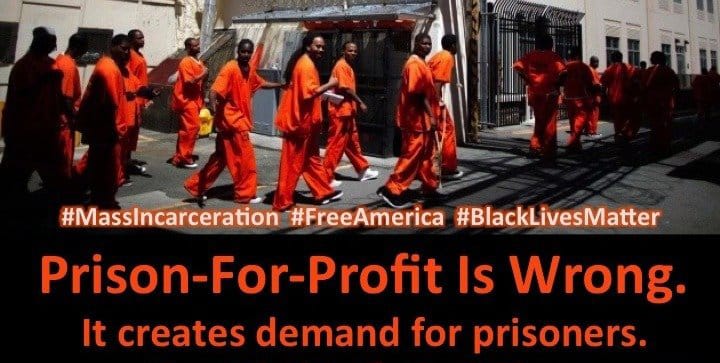The announcement follows a damning report on the safety conditions in contracted facilities.
by Ryan J. Reilly
Washington – The Justice Department plans to stop using privately run prisons that typically house undocumented federal inmates following a report finding they are less safe than those that are federally run, Deputy Attorney General Sally Yates said Thursday.
Yates said the Justice Department’s goal is “reducing – and ultimately ending – our use of privately operated prisons,” according to a memo Yates issued Thursday. The memo was first reported by The Washington Post.
“Private prisons served an important role during a difficult period, but time has shown that they compare poorly to our own Bureau facilities. They simply do not provide the same level of correctional services, programs and resources; they do not save substantially on costs; and as noted in a recent report by the Department’s Office of Inspector General, they do not maintain the same level of safety and security,” Yates wrote in the memo.
Stock prices of the country’s two biggest private prison companies – Corrections Corporation of America and GEO Group – nosedived by nearly 25 percent Thursday morning. Other big players in the industry – including Emerald Correctional Management, Management & Training Corp., Community Education Centers and LaSalle Southwest Corrections – are privately held companies.
Yates’ announcement follows the release of a damning report issued last week by the Justice Department’s Office of Inspector General that found privately run prisons “incurred more safety and security incidents per capita than comparable BOP institutions.”
The private prisons currently hold about 22,000 federal prisoners, around 12 percent of the total federal inmate population. They mostly house undocumented males with fewer than 7.5 years left on their sentences.
The memo follows.
Ryan J. Reilly is senior justice reporter, covering criminal justice, federal law enforcement and legal affairs for the Huffington Post, where this story first appeared. He is based in Washington, D.C., and can be reached at ryan.reilly@huffingtonpost.com.
US Department of Justice
Office of the Deputy Attorney General
The Deputy Attorney General Washington, DC. 20530
August 18, 2016
MEMORANDUM FOR THE ACTING DIRECTOR, FEDERAL BUREAU OF PRISONS
FROM: Sally Q. Yates, Deputy Attorney General
SUBJECT: Reducing our Use of Private Prisons
Between 1980 and 2013, the federal prison population increased by almost 800 percent, often at a far faster rate than the Federal Bureau of Prisons could accommodate. In an effort to manage the rising prison population, about a decade ago, the Bureau began contracting with privately operated correctional institutions to confine some federal inmates. By 2013, as both the federal prison population and the proportion of federal prisoners in private facilities reached their peak, the Bureau was housing approximately 15 percent of its population, or nearly 30,000 inmates, in privately operated prisons.[i]
Since then, for the first time in decades, the federal prison population has begun to decline, from nearly 220,000 inmates in 2013 to fewer than 195,000 inmates today. In part, this is due to several significant efforts to recalibrate federal sentencing policy, including the retroactive application of revised drug sentencing guidelines, new charging policies for low- level, non-violent drug offenders, and the Administration’s ongoing clemency initiative. Now, three years since the Department of Justice announced its Smart on Crime initiative, our efforts to address the pressures facing the Bureau are seeing real and positive results.
Private prisons served an important role during a difficult period, but time has shown that they compare poorly to our own Bureau facilities. They simply do not provide the same level of correctional services, programs, and resources; they do not save substantially on costs; and as noted in a recent report by the Department’s Office of Inspector General, they do not maintain the same level of safety and security. The rehabilitative services that the Bureau provides, such as educational programs and job training, have proved difficult to replicate and outsource – and these services are essential to reducing recidivism and improving public safety.
[i] As you know, the Bureau also maintains contracts with private companies to operate hundreds of community-based Residential Reentry Centers, or “halfway houses,” across the country. These facilities provide short-term transitional housing and community-based reentry services such as employment assistance. The use of private companies to operate Residential Reentry Centers is not the focus of this memorandum.






